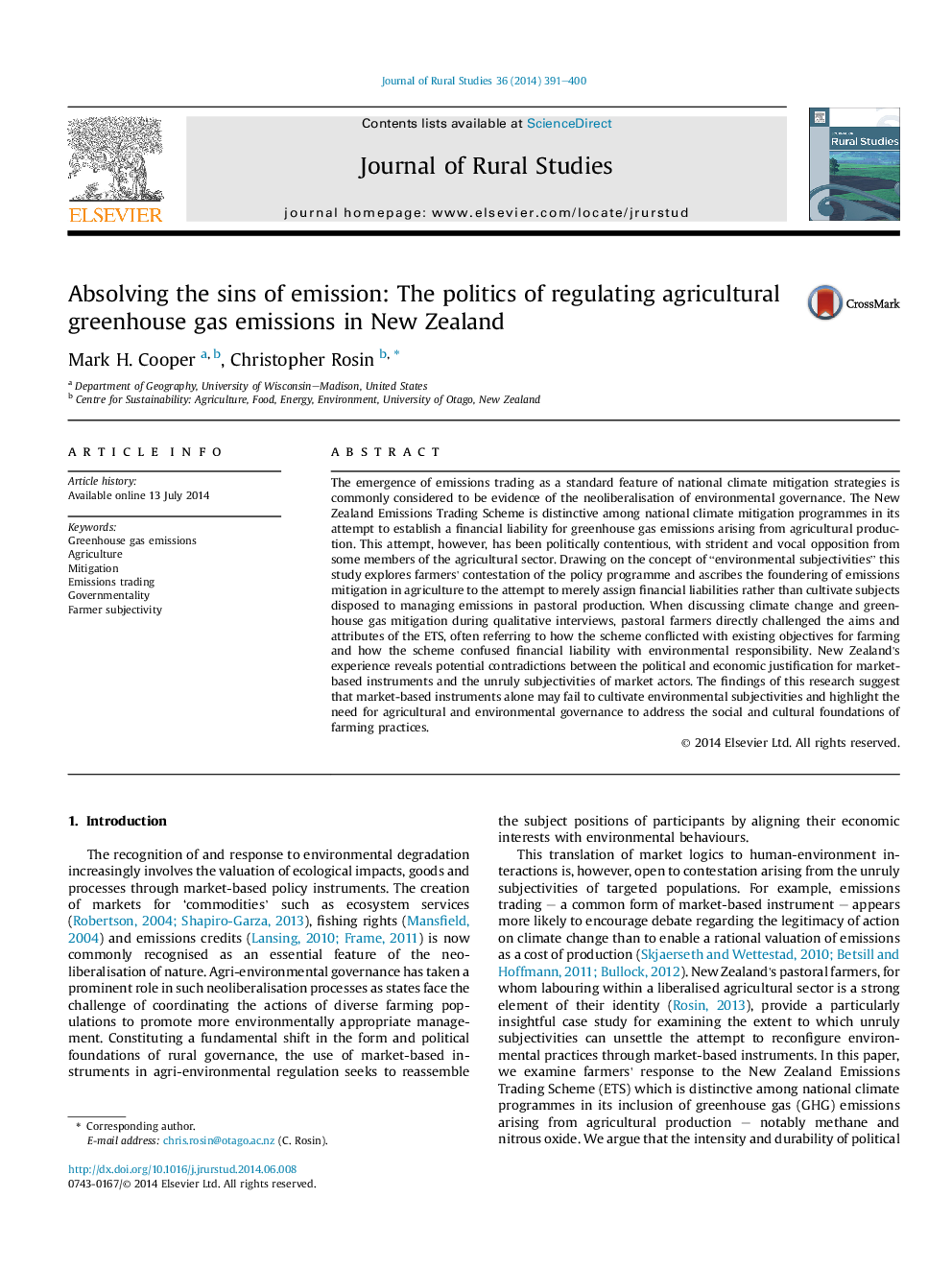| Article ID | Journal | Published Year | Pages | File Type |
|---|---|---|---|---|
| 6545777 | Journal of Rural Studies | 2014 | 10 Pages |
Abstract
The emergence of emissions trading as a standard feature of national climate mitigation strategies is commonly considered to be evidence of the neoliberalisation of environmental governance. The New Zealand Emissions Trading Scheme is distinctive among national climate mitigation programmes in its attempt to establish a financial liability for greenhouse gas emissions arising from agricultural production. This attempt, however, has been politically contentious, with strident and vocal opposition from some members of the agricultural sector. Drawing on the concept of “environmental subjectivities” this study explores farmers' contestation of the policy programme and ascribes the foundering of emissions mitigation in agriculture to the attempt to merely assign financial liabilities rather than cultivate subjects disposed to managing emissions in pastoral production. When discussing climate change and greenhouse gas mitigation during qualitative interviews, pastoral farmers directly challenged the aims and attributes of the ETS, often referring to how the scheme conflicted with existing objectives for farming and how the scheme confused financial liability with environmental responsibility. New Zealand's experience reveals potential contradictions between the political and economic justification for market-based instruments and the unruly subjectivities of market actors. The findings of this research suggest that market-based instruments alone may fail to cultivate environmental subjectivities and highlight the need for agricultural and environmental governance to address the social and cultural foundations of farming practices.
Related Topics
Life Sciences
Agricultural and Biological Sciences
Forestry
Authors
Mark H. Cooper, Christopher Rosin,
